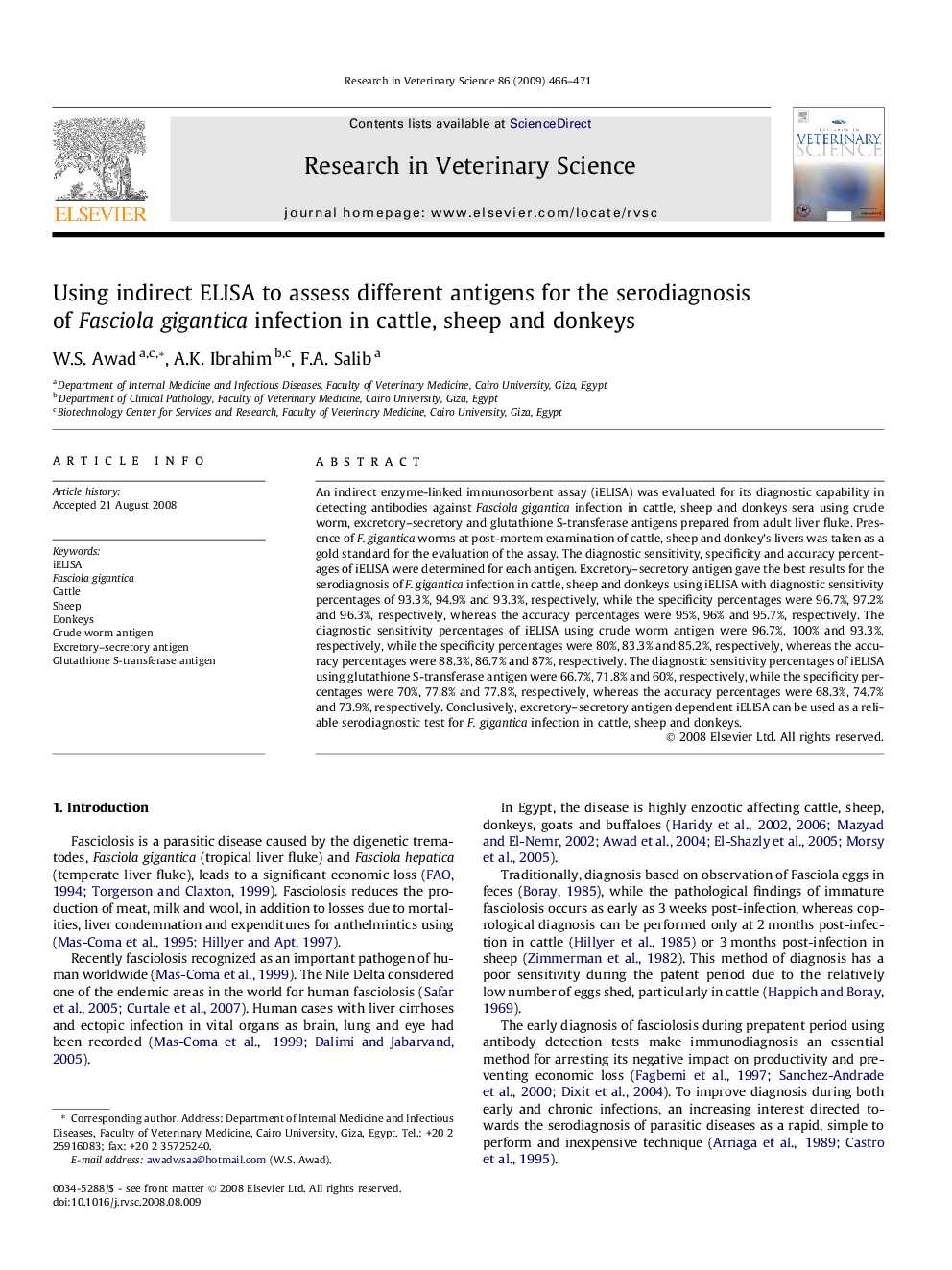| Article ID | Journal | Published Year | Pages | File Type |
|---|---|---|---|---|
| 2456125 | Research in Veterinary Science | 2009 | 6 Pages |
An indirect enzyme-linked immunosorbent assay (iELISA) was evaluated for its diagnostic capability in detecting antibodies against Fasciola gigantica infection in cattle, sheep and donkeys sera using crude worm, excretory–secretory and glutathione S-transferase antigens prepared from adult liver fluke. Presence of F. gigantica worms at post-mortem examination of cattle, sheep and donkey’s livers was taken as a gold standard for the evaluation of the assay. The diagnostic sensitivity, specificity and accuracy percentages of iELISA were determined for each antigen. Excretory–secretory antigen gave the best results for the serodiagnosis of F. gigantica infection in cattle, sheep and donkeys using iELISA with diagnostic sensitivity percentages of 93.3%, 94.9% and 93.3%, respectively, while the specificity percentages were 96.7%, 97.2% and 96.3%, respectively, whereas the accuracy percentages were 95%, 96% and 95.7%, respectively. The diagnostic sensitivity percentages of iELISA using crude worm antigen were 96.7%, 100% and 93.3%, respectively, while the specificity percentages were 80%, 83.3% and 85.2%, respectively, whereas the accuracy percentages were 88.3%, 86.7% and 87%, respectively. The diagnostic sensitivity percentages of iELISA using glutathione S-transferase antigen were 66.7%, 71.8% and 60%, respectively, while the specificity percentages were 70%, 77.8% and 77.8%, respectively, whereas the accuracy percentages were 68.3%, 74.7% and 73.9%, respectively. Conclusively, excretory–secretory antigen dependent iELISA can be used as a reliable serodiagnostic test for F. gigantica infection in cattle, sheep and donkeys.
